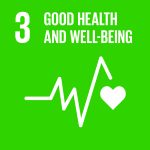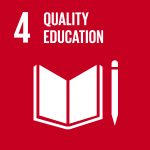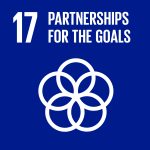Esta web utiliza cookies para que podamos ofrecerte la mejor experiencia de usuario posible. La información de las cookies se almacena en tu navegador y realiza funciones tales como reconocerte cuando vuelves a nuestra web o ayudar a nuestro equipo a comprender qué secciones de la web encuentras más interesantes y útiles.
Improving university governance by accelerating progress towards the UN Sustainable Development Goals: the POLITO case study
Description
Institution
Organizations/areas of the university involved
Green Team / Living Lab / Facility Management / Communication / Other Administrative Areas (Library cataloguing / Research & teaching support / IT / etc.)
Country
Italy
The Politecnico di Torino (Polito) has introduced the concept of sustainability since 2012, between the Principles of the Statute. In 2019, the 7th objective of the new strategic plan (horizon 2024) promotes responsibility actions, directed at teachers and students, to make the Polito community more familiar with the 17 SDGs. The development vision underlying the new policy document is offering to government bodies University decision-making criteria aligned with the 17 SDGs. With the aim of aligning the multiple activities and initiatives implemented for a long time into the system reference of sustainable development, Polito started in 2017 a mapping and coordination operation to reread our own educational, research and third mission output according to
17 objectives and related 169 goals proposed in the Agenda 2030 of the United Nations. In the context of education for SDGs, the Green team provided a significant teachers involvement for identifying, for each course, the SDGs of reference, starting from the educational offer for the academic year 2018/19. On the research side, the Green Team re-read the production of scientific research products from 2013 to 2018 and associated them with one or more SDGs. A first association has been made by a machine learning tools, trained by manual input to refine the intermediate results, to propose researchers a first hypothesis of match. After this prompt, every researched is requested to check and update his/her publication on IRIS (the European database of researchers profiles). As for assessing students’ awareness of SDG framework and related societal challenges, results from more than 600 freshers’ filled survey will be mined for data to map the current level of sustainability literacy and monitor progress overtime. The matrix of topics and the format are aligned with the SDGs framework, but a statistical consolidation between the pilot phase and a more refined version is still not possible, given that results are being analyzed at the time of this case study (April 2019).
Results and impact measured or expected
After this preliminary analysis, course contents will be revised to enhance the common matrix of the polytechnic culture, which is constituted so particular from the design competence. It will therefore be implemented through project activities to fit into both individual teachings and with multidisciplinary initiatives. In particular, the traditional problem solving orientation will switch toward the co-creation of a new form of knowledge, to frame and structure problematic and wicked situations, made of uncertainty and complexity.
In this direction, continuous monitoring of how the 17 sustainable development goals proposed from Agenda 2030 of the UN are introduced in the syllabus of each teaching will offer an important reference for teachers and students and a stimulus to the analysis of complexes interconnections that exist in reality.

Connection with the SDG framework
The SDG mapping by Polito Green Team has been an occasion to collect all the research and teaching activities connected to SDGs. At the national level, Polito holds the presidency and the secretary of the RUS (Italian Network of Universities for Sustainability), in connection with other major sustainability stakeholders at national and international level, sharing good practices for SDG integration into the University governance. This matches with the 17th SDG, aiming at strengthening partnerships to support and achieve the ambitious targets of the 2030 Agenda, bringing together national governments, the international community, civil society, the private sector and other actors. Results from the students mapping of their SDGs awareness and perception will be used to develop a materialty matrix to improve the sustainability and quality of life on our campus (SDG3 and SDG4) and meet both the expectation of government bodies, innovative educational facilities and students aspirations.
Barriers and follow up
This first warm-up lap picked up the persistence of some difficulties in managing relationships between professors and an SDG-dedicated training. The lack of time and the infrastructural framework impose barriers at local, national and international level related to course contents and hours (for professors) devoted to update their curricula and educational skills. To address these problems, Polito will invest in the development of figures dedicated to managing those requirements, that have adequate sensitivity to understand both the technical and the scientific contents to map towards SDGs and can have a dedicate space (namely a teaching lab) to train and address specific educational targets related to curricula update over the SDG framework.
Education 4 SDG funciona gracias a WordPress



